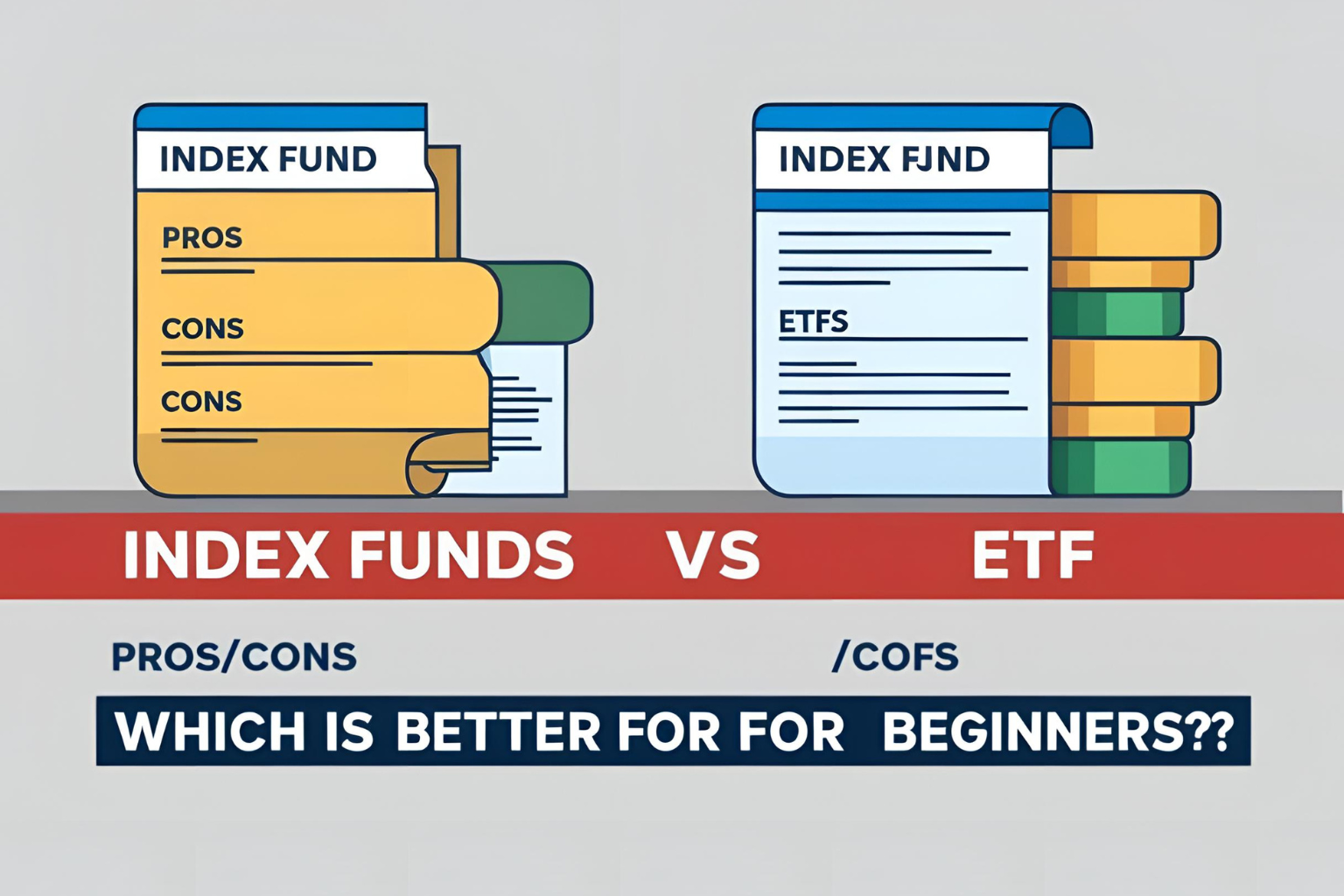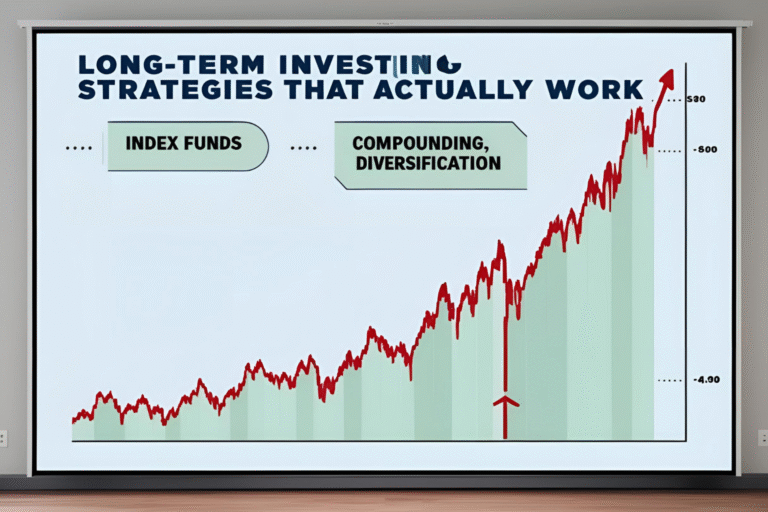Index Funds vs ETFs: Which Is Better for Beginners?
If you’re new to investing, you’ve probably come across two popular options: index funds and exchange-traded funds (ETFs). Both offer low-cost exposure to a diversified set of stocks, but they aren’t the same.
In this guide, we’ll break down the differences between index funds and ETFs so you can decide which is better for your financial goals.
What Is an Index Fund?
An index fund is a type of mutual fund that mirrors the performance of a specific market index, such as the S&P 500. When you invest in an index fund, you’re buying a basket of stocks designed to match that index.
- Trades once per day
- No real-time pricing
- Great for long-term, hands-off investing
What Is an ETF (Exchange-Traded Fund)?
An ETF is similar to an index fund but trades on stock exchanges like a regular stock. It also tracks an index but gives investors more flexibility.
- Trades throughout the day
- Real-time pricing
- Often more tax-efficient than mutual funds
Key Differences Between Index Funds and ETFs
| Feature | Index Funds | ETFs |
|---|---|---|
| Trading | Once per day | Throughout the trading day |
| Minimum Investment | May require $500+ | Can start with one share |
| Tax Efficiency | Less efficient | Generally more tax-efficient |
| Fees | Similar, but may be higher | Typically low |
| Automation | Easier with auto-investing | Requires brokerage platform |
Which Is Better for Beginners?
Index Funds may be better if:
- You prefer automatic investing
- You’re using a retirement account (like a 401(k) or Roth IRA)
- You don’t plan to trade often
ETFs may be better if:
- You want flexibility during market hours
- You’re investing through a brokerage app like Robinhood or Fidelity
- You prefer lower initial investment amounts
Pros and Cons of Index Funds
Pros:
- Simple and passive
- Great for retirement accounts
- Auto-investing options
Cons:
- Trades only once per day
- Less control over timing
Pros and Cons of ETFs
Pros:
- Real-time trading
- Low expense ratios
- Better tax treatment
Cons:
- Requires a brokerage account
- Can be overwhelming for new investors
Final Thoughts
Both index funds and ETFs are excellent investment vehicles for beginners. The right choice depends on how hands-on you want to be, your account type, and how you prefer to manage your investments. Regardless of the option you choose, staying consistent and investing early matters most.
FAQs
Can I lose money in an index fund or ETF?
Yes. Both reflect the market’s performance. They’re less risky than individual stocks but not risk-free.
Are ETFs cheaper than index funds?
ETFs often have lower expense ratios, but the difference is usually small.
Can I set up automatic investing in ETFs?
Some platforms (like Fidelity and Schwab) allow it, but index funds are more automation-friendly.
Which is better for a Roth IRA?
Both are good, but index funds might be simpler for automated contributions.
Do I need a lot of money to start?
No. Many ETFs allow you to start with the price of a single share. Index funds may require a higher minimum.


